Graham Reid | | 4 min read
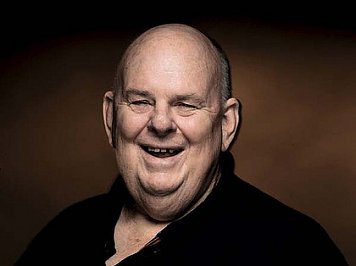
The day after Australian Prime minister
John Howard is hailed by US President George Bush as being "kind
of like a Texan", Les Murray considers the statement.
"Then maybe they'll take him," he muses - then laughs in a high, sharp pitch which punctuates the digressive and amusing half-hour conversation. "He isn't all bad, of course. But he does seem to glory excessively in the approval of the White House. I find that a bit disgusting."
This then is Les Murray: Australian poet and an iconoclast who alienates liberals as much as conservatives. His popular but not entirely populist poetry has been dismissed with the pejorative "Bush Bard" term, but he can intellectually out-gun most when it comes to the high art of poetics.
As the fat kid in school he can spot the bullies, whether they be political or intellectual, and his work has won too many awards to enumerate. By way of example, his towering novel in verse, Fredy Neptune, won this staunch republican the Queen's Gold Medal for Poetry awarded at Buckingham Palace.
 At 64, Murray is in typically good humour
and plain-spoken. His literary success is resented by many across the
Tasman, largely because he's reached an audience others haven't, or
can't.
At 64, Murray is in typically good humour
and plain-spoken. His literary success is resented by many across the
Tasman, largely because he's reached an audience others haven't, or
can't.
His work may not be quoted in public bars like that of Banjo Paterson, but it is known and Murray is considered a good bloke who says what he thinks. Many of his critics are envious of his success, he says.
"A lot of what I cop is plain jealousy and it finds terms in which to express itself. Career jealousy can't come out and say, 'I hate this bastard because he writes well'. It's got to say, 'He's got politically incorrect attitudes but I can't quite figure out which ones because he's a subtle, devious bastard. But I know he's bad. He must be bad because he's writing better than I am.'
"Poetry has been captured by a class which prohibits the positive. They see themselves as in perpetual rebellion against society, and it's a rather sour, radical rebellion. I don't buy it, particularly as it practises heavy bullying and manipulation of fashion against people.
"In Australia it's political. The arts have been delegated to the radical end of the Labor Party. As a kind of substitute for real power they've been given the arts and the result is there is terrible pressure on, and suppression of, any other voice. A lot of good people in Australia are systematically denied publication or don't get reviewed.
"They've got the wrong kind of friends or too much old-fashioned independence. Independence is not a valued thing in Australia at all, hasn't been for a generation."
Murray, born of working-class rural parents, has maintained his independent streak and his poetry can step deftly between the bar-room yarn and the intellectual. But he despises cultural arrogance. One of his collections was provocatively titled Subhuman Redneck Poems, another The Vernacular Republic.
Yet Fredy Neptune has invited critical comparisons with Homer's Odyssey and Coleridge's Rime of the Ancient Mariner, both of which he denies.
His conversation bounces between the mighty and the mundane but he talks engagingly of the mystery of creativity which he has likened to a trance-like state. He can now create the circumstances because it's something he learned in his apprenticeship studying himself.
"You don't quite know what you are learning, but you are learning to manage a certain kind of trance which comes from dreaming at the same time as you are thinking. The body also gives you things like rhythm, weight, balance and breath, all of which are important to art. And emotion above all.
"So when those are operating in some kind of concert, they may be fighting a bit but they are in a dynamic relationship, that's the trance I refer to as a creative one. You can gradually learn to bring it on and utilise."
Such an induced, elevated state may work for a few stanzas, but a novel-length poem such as Fredy Neptune which is divided into five books?
It is a muscular, grim and visceral story - much like his conversation, peppered with asides - which follows the life of a Zelig-like German-Australian through the horrors of World War I.
After seeing Armenian women torched by their captors, the title character Fredy Boettcher is traumatised and loses the capacity of physical feeling. In picaresque intercontinental journeys he travels from Cairo to Hollywood through a variety of jobs and adventures, eventually learning forgiveness of himself and others. At the end he walks away from the story with the line: "But there's too much in life: you can't describe it".
Murray says the ending was appropriate, Fredy and the narrative - which he worked on over many years - had come to their natural end.
"I wrote one book and left it alone for six or eight months until another gradually grew. I found the book as I went. It was like following a string into the dark. You knew when you lost a grip of the string, suddenly the thing would go unauthentic so you'd have to feel around and start finding the real story again.
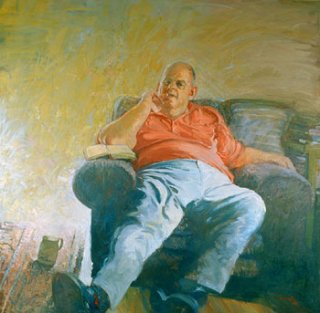 "As soon as I lost the thread I
would get a strong signal that I was starting to make it up.
Sometimes when you write these narratives they hang around as if to
say, 'You haven't quite completed me'. But this one Fredy just walked
away."
"As soon as I lost the thread I
would get a strong signal that I was starting to make it up.
Sometimes when you write these narratives they hang around as if to
say, 'You haven't quite completed me'. But this one Fredy just walked
away."
That final line also strikes a chord in his own life. He says he won't be around much longer but accepts his mortality and mentions a poem he has just retyped. It is about his parents-in-laws' house, now deserted since his wife's father went into a rest home.
"A life that went on there for 40 years is suspended but is pretending to be going on. But it's finished. You get into the habit of living - then one day you die," he laughs.
Humour comes easily to Murray but politicians, bullies of the left and right, ideologies and political correctness are constant targets.
"We can rely on human viciousness and frailty to throw up a fair bit of horror in the centuries to come. Some things might hold and stay better," he says unconvincingly.
When he speaks in New Zealand he says he will keep mum on such matters, although because they infuse and inform his work that seems unlikely.
"I'm just going to read poetry because that's the important thing. You don't pontificate to people - there's too much of it in the world, too much speechifying.
"As far as possible," he says leaving the door slightly ajar, "I'm just going to read poems."

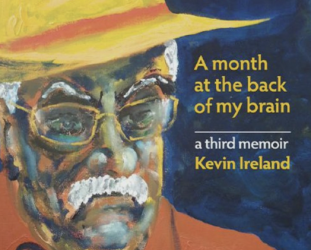
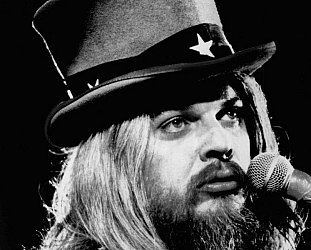
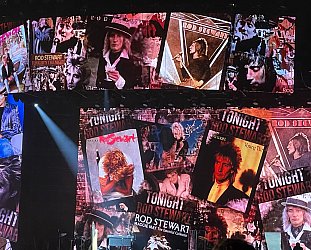
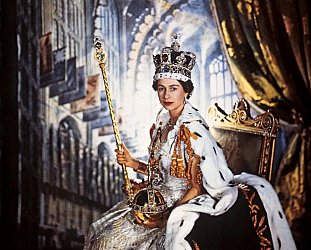
post a comment